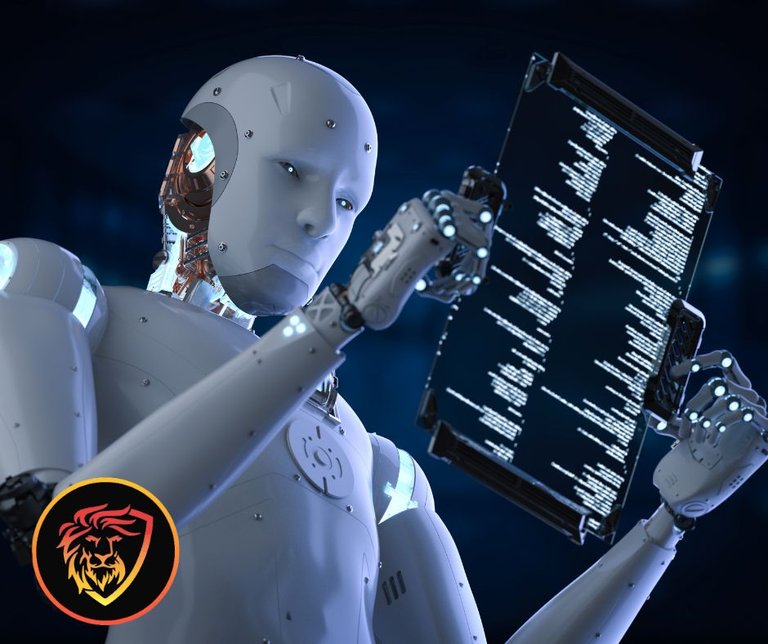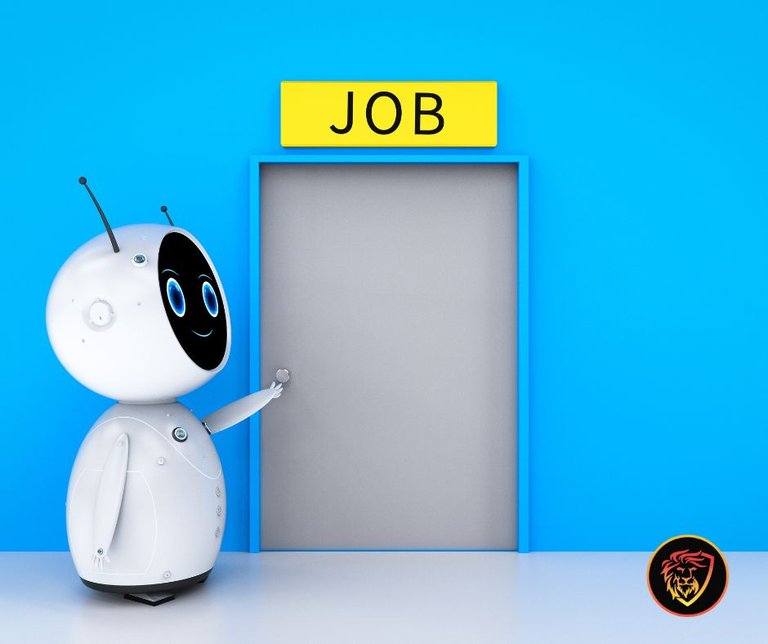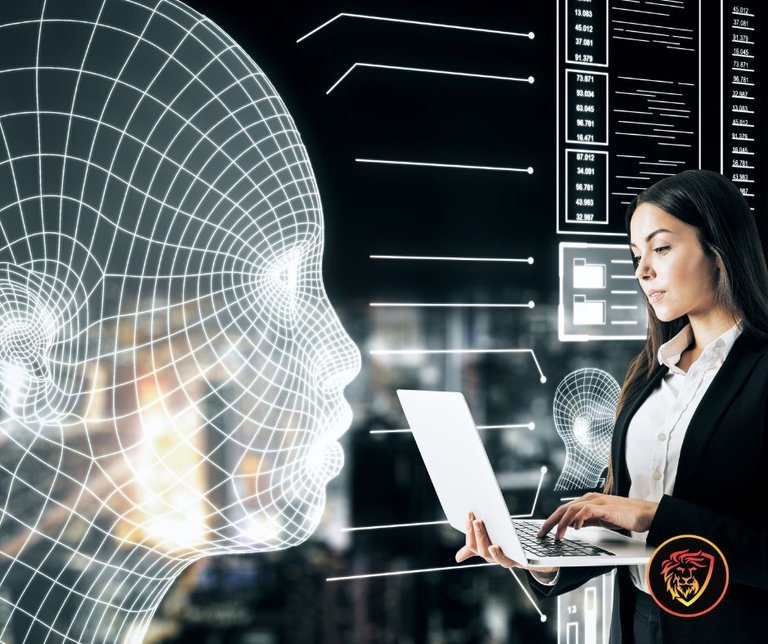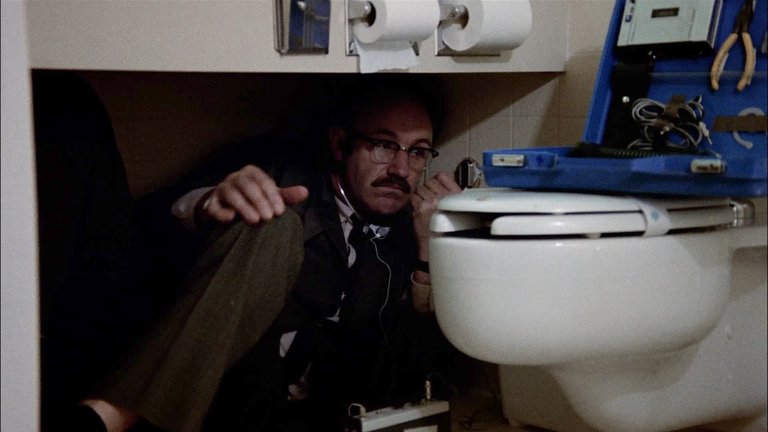A Harbinger of Privacy Erosion and the Age of AI
A Harbinger of Privacy Erosion and the Age of AI
Good morning Lion’s I trust you are safe and well, I re-watched a film just recently mainly because I saw it being promoted and talked about on social media and it triggered many of the feelings I had when I first watched it many moons ago. I can’t believe how I missed it when we are currently having discussions about Artificial Intelligence (AI).
If you have any doubts about the current age of AI and the end of an era we are currently facing the film The Conversation really hones in on those warnings and the film itself was even a failure at the box office. Purely because people did not understand the message it was sending to everyone.
In the archives of cinema certain films stand out not just for their entertainment value but for their prescient insight into societal issues that would become increasingly relevant over time. Francis Ford Coppola's "The Conversation," released in 1974 is definitely one such cinematic gem. A taut psychological thriller a film that not only had a gripping narrative but also served as a chilling warning about the erosion of privacy in the modern age.
Set against the backdrop of the surveillance industry which was relatively new at the time "The Conversation" follows Harry Caul (played masterfully by Gene Hackman), a meticulous and reclusive surveillance expert as he becomes embroiled in a moral and existential crisis. Tasked with eavesdropping on a seemingly innocuous conversations. Caul's professional detachment begins to unravel as he uncovers layers of deceit and manipulation which ultimately leads to a tragic outcome.
What sets "The Conversation" apart from its contemporaries is its acute awareness of the implications of technology on privacy rights. In an era long before the advent of ubiquitous digital surveillance. The film was the first to deftly explore the ethical dilemmas surrounding the use of listening devices and bugs to invade the privacy of unsuspecting individuals. Coppola's portrayal of Caul's paranoia and guilt serves as a masterful metaphor for the moral ambiguity of surveillance culture and the erosion of personal boundaries

AI and Privacy In The Modern Age
Fast forward to the present day, and the themes explored in "The Conversation" are more relevant than ever. With the exponential advancement of technology particularly in the realm of artificial intelligence (AI). We find ourselves in a similar situation to the one depicted in the film albeit on a much larger scale.
AI, with its ability to analyze vast amounts of data and discern patterns is ushering in a new era of surveillance and data collection. From facial recognition software to predictive algorithms, our every move is being tracked and analyzed by unseen forces. While supporters argue that such technologies enhance security and efficiency critics warn of the encroachment on civil liberties and the erosion of privacy rights.
Much like Harry Caul in "The Conversation," we are confronted with difficult questions about the ethical boundaries of technological innovation. As AI becomes increasingly integrated into our daily lives, we must grapple with the implications of relinquishing control to machines that possess the power to shape our realities.

AI and it's impacts on Employment
One of the most pressing concerns surrounding the rise of AI is its impact on employment. With automation poised to disrupt entire industries, millions of jobs are at risk of being rendered obsolete. While AI promises increased productivity and efficiency the socio-economic consequences of widespread job displacement cannot be ignored. Without proper safeguards and retraining programs in place, we risk exacerbating inequality and widening the gap between the haves and have-nots.
Furthermore, the proliferation of AI-powered surveillance tools raises serious questions about civil liberties and individual autonomy. As governments and corporations amass unprecedented amounts of data on citizens the potential for abuse and exploitation looms large. Without robust regulatory frameworks and transparent oversight mechanisms we risk descending into a dystopian nightmare where privacy is a relic of the past.
However, it is not too late to see the warnings of films like "The Conversation" and chart a more ethical course for the future of AI. By fostering dialogue and collaboration between technologists, policymakers and civil society, we can ensure that AI is developed and deployed in a manner that upholds fundamental human rights and values.

AI Warning
"The Conversation" remains a timeless masterpiece that serves as a timeless reminder of the perils of unchecked surveillance and the erosion of privacy rights. As we stand on the turning point of the AI revolution, it is imperative that we learn from the mistakes of the past and strive to build a future that respects the dignity and autonomy of all individuals. Only then can we ensure that the promise of technology is realized for the benefit of humanity as a whole.
Image sources provided supplemented by Canva Pro Subscription. This is not financial advice and readers are advised to undertake their own research or seek professional financial services.
Posted Using InLeo Alpha

Tucker said it well, that we are being led into the abyss of AI by people who have no children nor sense of the future that we want to secure for ours. It is being done haphazardly and with little qualms. Definitely an important message here, one that many people around me don't seem to understand yet!
Other anxieties aside, the piece of "friction" I keep running into in this whole ballgame is this subtext that automation and AI will (allegedly) be part of what brings us into an age of great prosperity.
But only half the equation actually works: AI/Automation is reducing the cost of production of many things, and that will have an exponential impact in the decades to some. The half the doesn't seem to work is that the sellers of these AI-assisted products/services can now produce their "thing" for 70% less than they used to... but their prices just went up another 20%... ..."because, inflation." Meanwhile... automation is replacing more and more jobs, but people are expected to have the money to buy those 20% more expensive goods. From where I am sitting, that spells "prosperity" for a tiny number of people, and eventual destitution for everyone else.
Congratulations @melbourneswest! You have completed the following achievement on the Hive blockchain And have been rewarded with New badge(s)
You can view your badges on your board and compare yourself to others in the Ranking
If you no longer want to receive notifications, reply to this comment with the word
STOPCheck out our last posts:
Post voted 100% for the hiro.guita project. Keep up the good work.
New manual curation account for BEE and Cent
sounds promising! especially being from a time when movies still pointed out trends and prospected existential questions. this movie gets put on the to-watch list for a rainy day.
thanks!